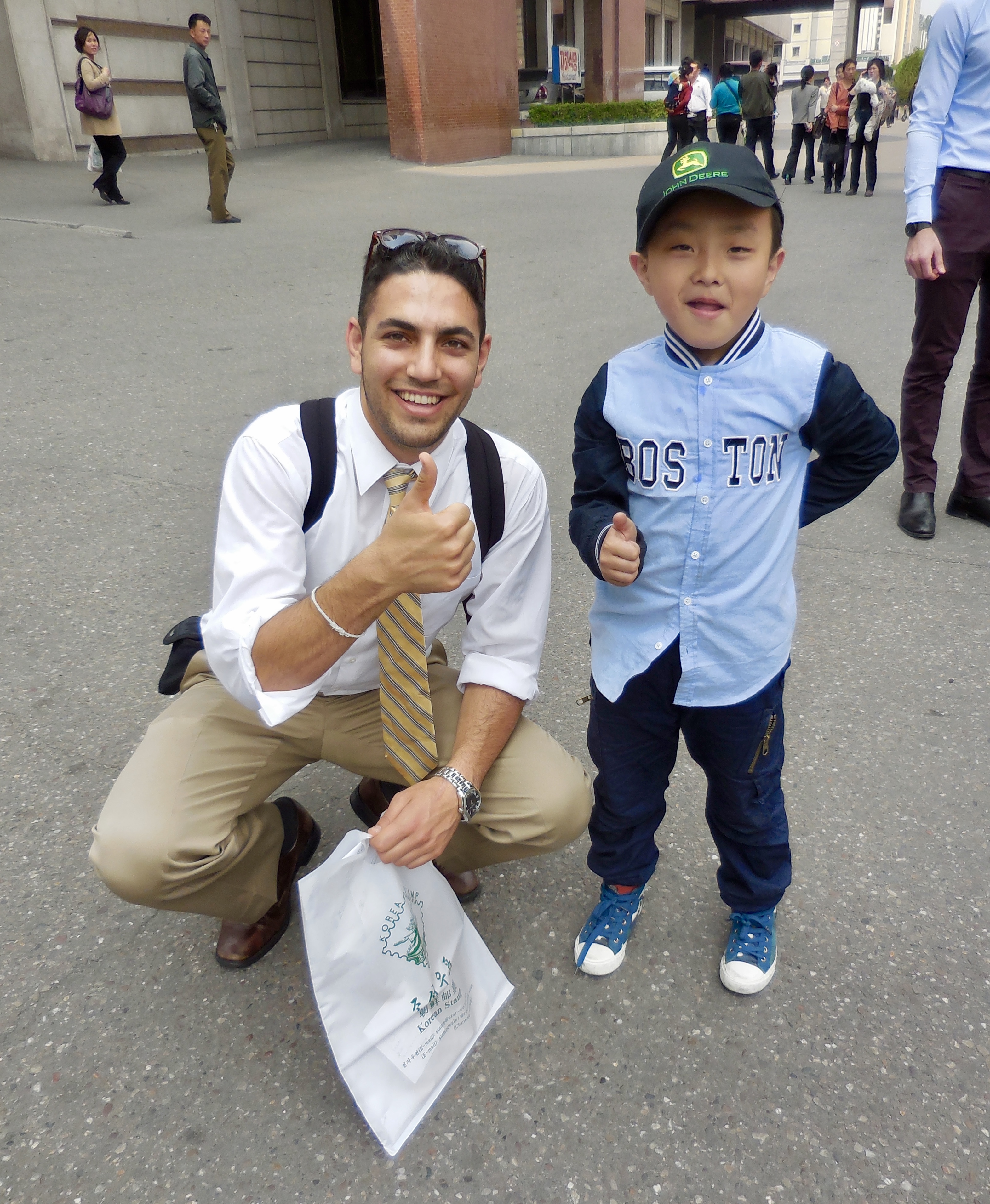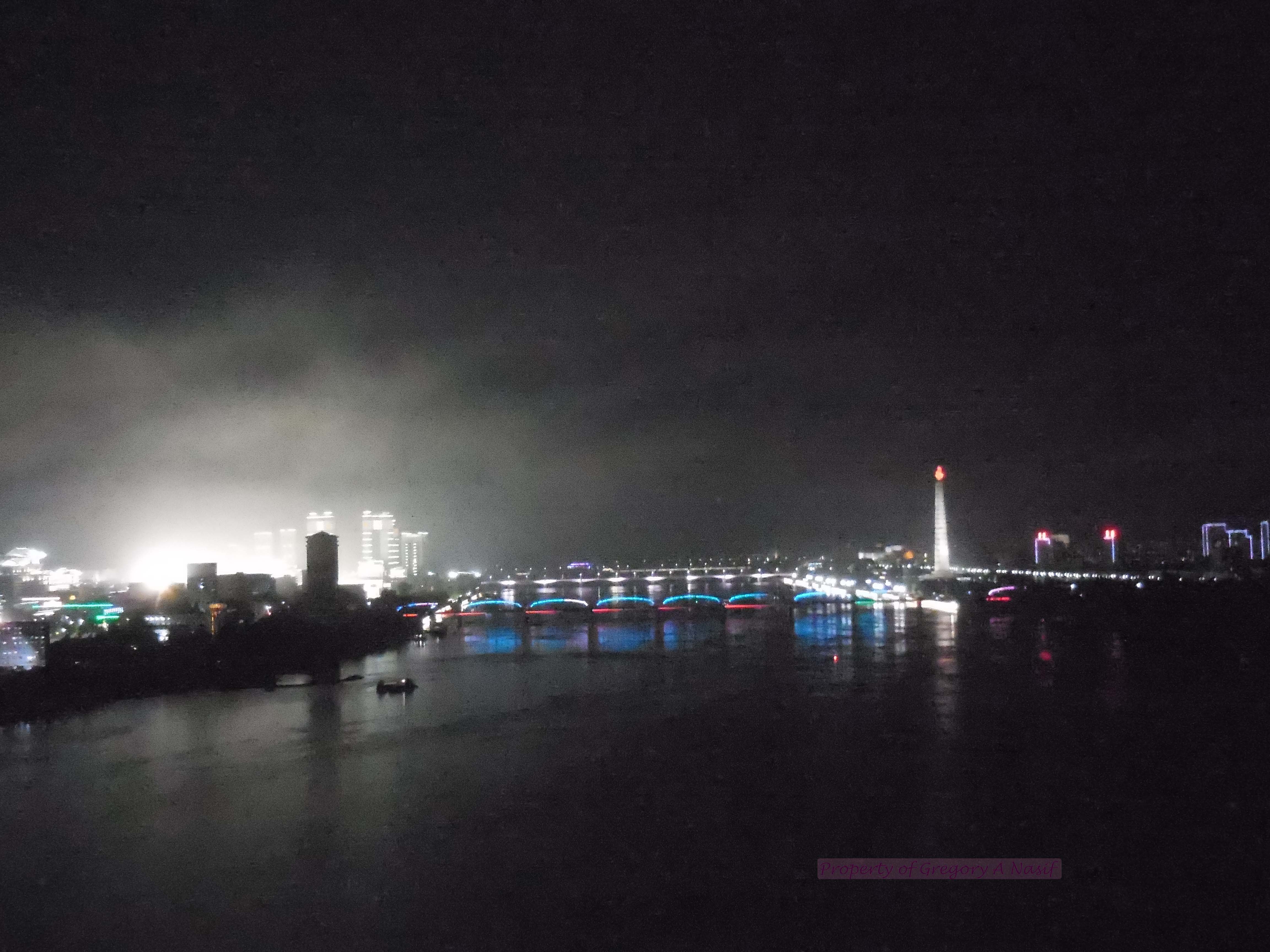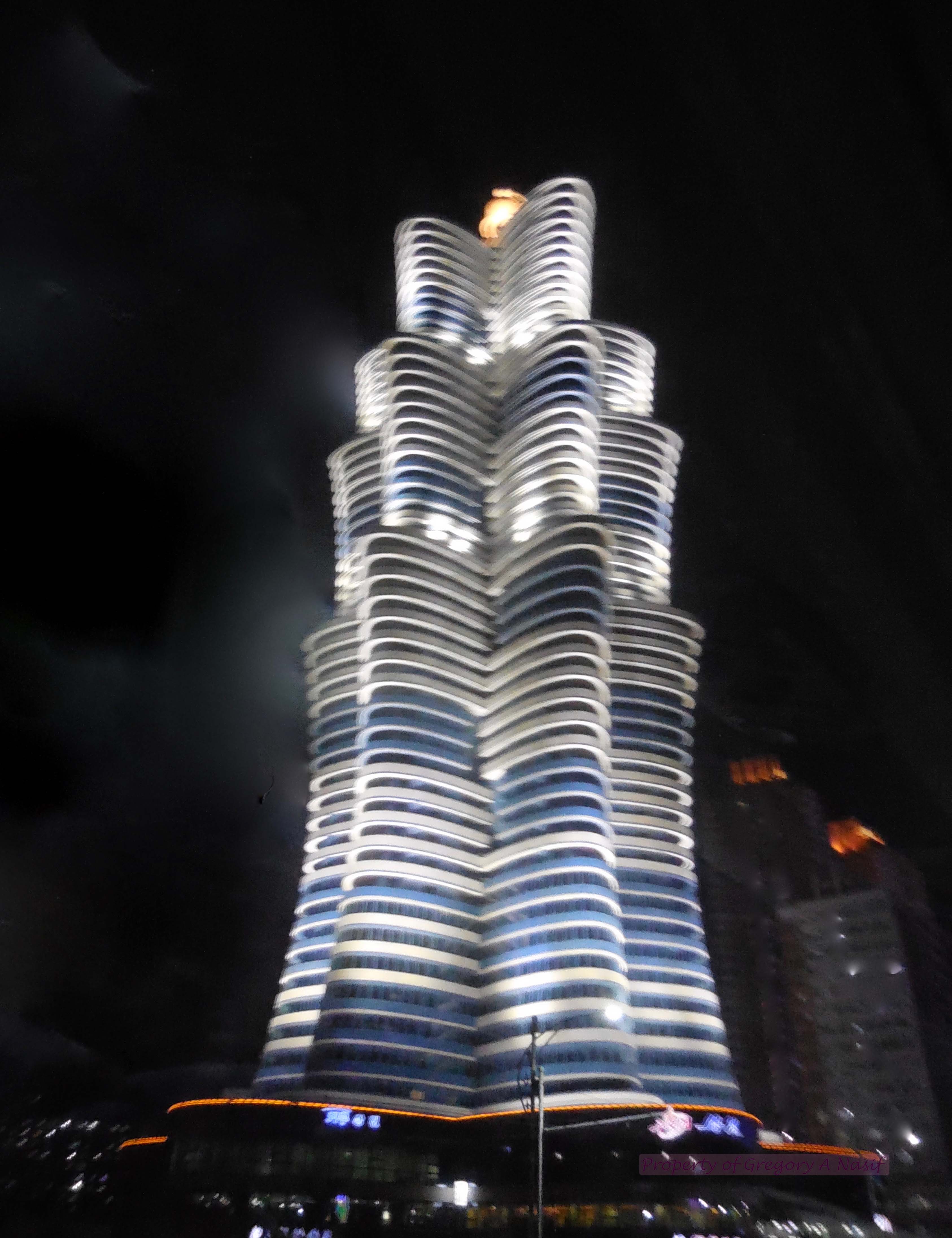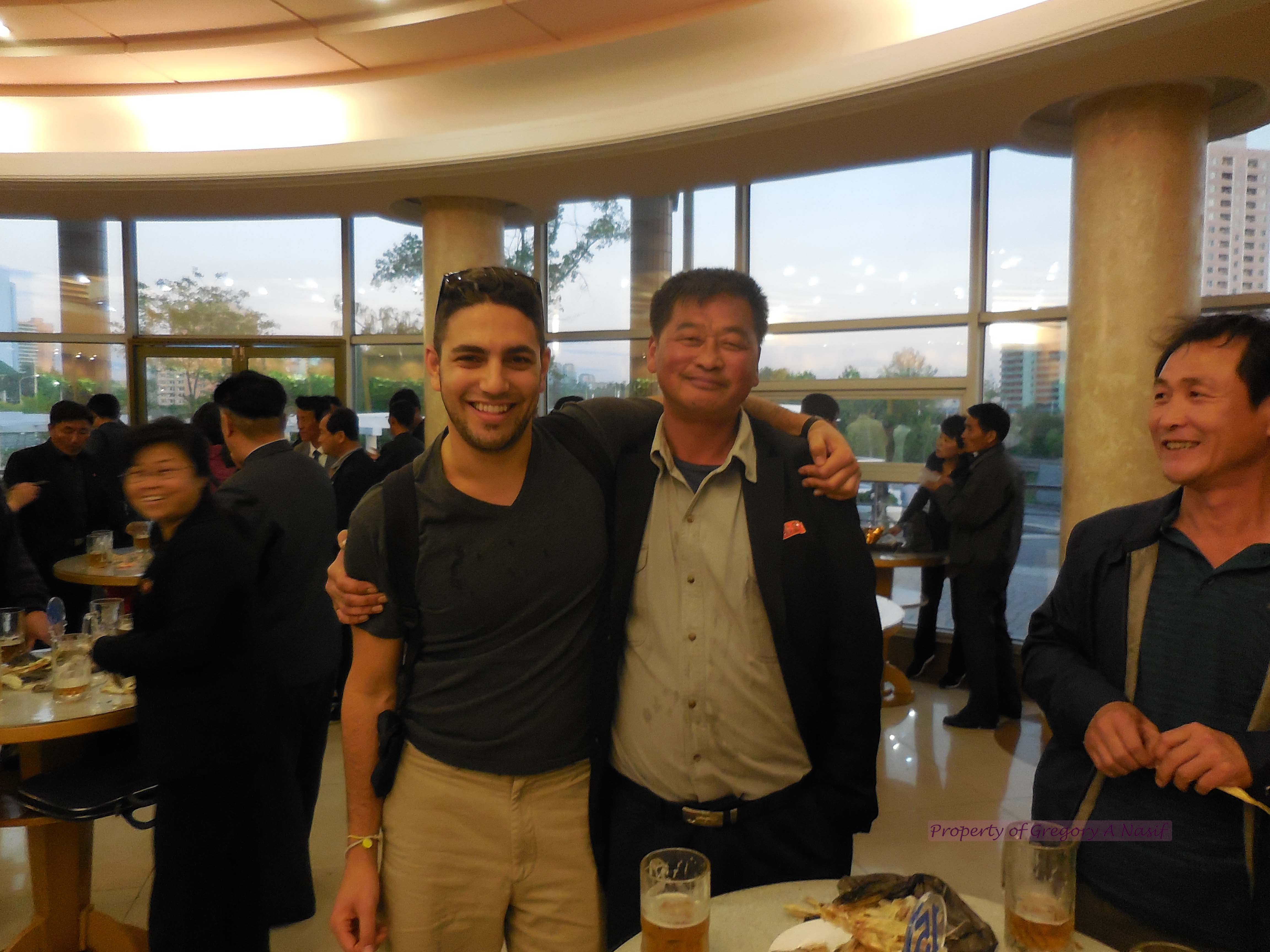In April 2016, I visited North Korea with a group tour organized by Koryo Tours.
Visiting North Korea was controversial decision for me to make. I knew there was a serious downside to it; I would indirectly be financing the world’s most dystopian, orwellian state and the crimes they commit.
But the same could be said for visiting many nations with corrupt governments, or even for patronizing immoral corporations.
Lost in the discussion are the North Korean people – in visiting, I’d also be interacting with average people, supporting them in their livelihoods, and exchanging culturally with them. I knew, when I visited this troubled country, that I could use my trip for good, and provide the North Koreans I met with a positive experience with me, perhaps the only American they will meet for the foreseeable future. On this charge, I believe I succeeded.

The first North Koreans I met and the only ones I got to know well were our tour guides. And they were lovely people. They took a lot of our increasingly invasive questions politely and calmly, never leaving the party line, but also never showing impatience as we tried to push them over it. On our last evening in the country, we even got a semi-professional singing performance from one of them, as the elegant Ms. Jeon gave a beautiful, regal rendition of Pangapsumnida, one of the national songs, on our tour bus. And as it turned out, they had one more surprise for us before taking us back to the hotel, that last night in Pyongyang.

We were going to a real bar.
The entire week, we had socialized only at the hotels. Heading to what was described as Pyongyang’s first “beer bar,” I figured it would be more of the same – an empty exhibit that pretends to be a normal place. Like so many more moments in this country, I figured wrong.
It was packed. With North Koreans.
Two days before the Seventh Congress of the Workers’ Party was set to begin, Pyongyang was bustling with elites: businesspeople, public officials, and socialites from all over the country. It seemed at least half of them had come to this bar on a Wednesday night, drinking, snacking, and laughing about how great they thought their country was, with every kind of beer the bar could offer. Six, to be exact. Two dark ales and four lighter ones. They ranged from 100% rice-based to 100% barley-based.
At first, entering the bar, the group of twelve travelers took pictures together. Perhaps it was the bonding effect of such a unique and dramatic experience, or maybe it was just a really great group, but we all got along very well. The conversations we had throughout the week were increasingly rich, diverse, unfiltered, thrilling. The North Koreans probably have a recording of them somewhere… I wish I did too.
But I’d come too far to hide amongst the foreigners, so I headed out to test the waters.
Approaching North Korean strangers, I began using my tightening grasp on basic Korean greetings and pleasantries to ignite conversations.
I’d say hello to a bunch of people at a circle table, ask their names, and try to chat. Pleasant surprise was the most common reaction. Without much to respond with, they’d share food with me. In East Asia, refusal is rude.
Through miming basic adjectives and using food as props, we talked about where we were from. I may have spawned a cult Boston Celtics following in Pyongyang; North Koreans really like basketball.
I brought along Ms. Jeon as my go-to translator and was using her to rain compliments down on everyone’s clothes, jobs, and ask questions. I asked two guys what they did. One was a scientist. “What kind of scientist?” I asked.
“Philosophy” I was told. The day’s lessons returned to me. There is only one philosophy in North Korea. “He studies Juche?” I asked Ms. Jeon.
“Juche, ye, (yes)” he interrupted. Perhaps he was a propagandist. Needless to say I skipped complimenting his work.
Through small talk like this, I seemed to become a magnet for attention. While briefly conferring with Ms. Jeon, a particularly large, sloppy-looking Korean man with a slack face butted in.
“Where from?” he gruffed in English, pausing his ravenous feast of snacks.
“I’m from America.”
“America,” he repeated in a surprised grunt, before shaking his head, crossing his arms and waving off the conversation. In this way, he silently said, “I don’t like America, now get out of my face.” I shrugged and returned to my chat with Ms. Jeon.
“These people look happy to see you,” she offered, pointing to the third table that, witnessing this rebuff, perhaps wanted to show that North Koreans were more welcoming than this drunk. I took the opportunity, biding my time, sharing food and toasts with yet more surprised North Koreans who were probably wondering where my American horns and claws were.
Ordering another beer, I asked Ms. Jeon to approach the dejected fellow who had earlier rebuffed me. He noticed us gesturing to him and made the first move, calling us over to him. By now another fellow traveler, Fuchsia, had joined in.
In what may have been his effort at apology, he took to his plate, stripping off pieces of a really dry, yellowish-brown pollack jerky, and offered them to us. As he taught, first sip the beer, then smell the fish, then drink again, then eat it, so we did. Perhaps he thought we’d find this unbearable. He did not count on me living in Japan, international capital of stinky dry fish, nor on Fuchsia being a world-renowned chef and foodie. As we confidently threw the fish strips into our mouths, there was something of an audible gasp. Eating the fish had impressed the Koreans – these westerners were bolder than they looked!
Nonetheless, I struggled to chew the rubbery jerky, and thankfully the man started talking. I recognized city names in his rambling, as Ms. Jeon began to translate.
“He is a professional boxer,” she explained. “He went to the American city of Atlanta for a boxing match!” she continued, following his mumbling. We learned he also fought in Cairo. One of his opponents was from Argentina. This was one of the few North Koreans to have ever set foot outside the country.
“What did you think of Atlanta?” I asked him, swallowing with difficulty. He gestured that it was hot.
“Coca! Coca Cola!” he babbled. He went to the “World of Coca Cola” museum in Atlanta. For a short while we chatted as easily as the beers would allow us.
My 100% rice-based beer arrived. I took a sip – it was a bit light. Perfect.
I thanked the boxer for the fish and instructed Ms. Jeon to tell him I wished to challenge him to a chug-off. The man instantly accepted.
“This is diplomacy” I declared to a mesmerized Fuchsia, who was quietly doubting my chances.
We counted to three in Korean. Il, ii, sam.
With a clang I threw the glass into my face and wolfed the beer as fast as I could.

In my life I have chugged beers more than a few times. In friends’ backyards, in college apartments and dorms, in my house, at this college, at that college, frat houses here, sorority houses there, and perhaps in a dozen countries across Europe and Asia, with friends, family, and probably at least once with you reading this now – but it never actually meant anything. Finally, for once, it felt like it actually mattered. I was drinking for America.
Although the contest began with another inch or so of beer in my mug, I emptied the glass and slammed it on the table to a storm of cheers and gasps.
“How do you say ‘friend’ in Korean?” I asked Ms. Jeon, as the man sputtered in a shower of his own unfinished beer and shock.
“Chingu” she replied, smiling, as the man regained composure. With a high five and a boshosumnida! (great job!), I made a new friend. “Chingu!” we exchanged.

Americans are no longer permitted to visit North Korea. There were many more Koreans in that bar, and around the country, who, I’m sure, have unexpectedly positive memories with me, the only American they may ever meet for decades. For this man started the hour essentially telling me to die, and ended it embracing me for all in the bar to see. A citizen of, allegedly, his nation’s greatest foe. This undermines their propaganda. Really, just seeing me without horns and claws may do damage to a carefully government-orchestrated misconception of Americans.
At the same time, I met many good people, not just in that bar, but throughout the country, everywhere I went. Rich or poor, meek or strong, the people of North Korea were not nearly as fierce as their propaganda posters may imply, nor as violent or selfish as the leaders they never chose. They were the complete opposite – warm, friendly, and inviting.
These lessons are an invaluable exchange. They are why I visited North Korea, a nation of good people who deserve better.
This moment in particular was later referenced by Fuchsia in a piece she wrote about the trip for the Financial Times Magazine.